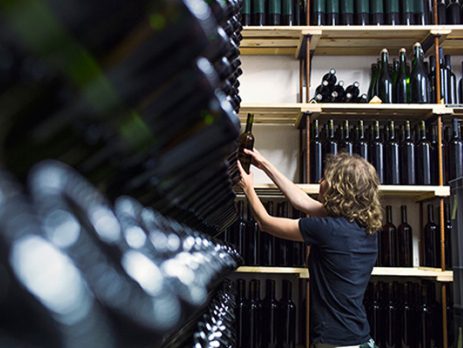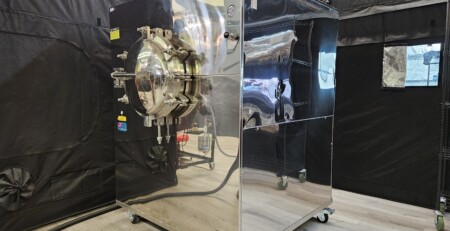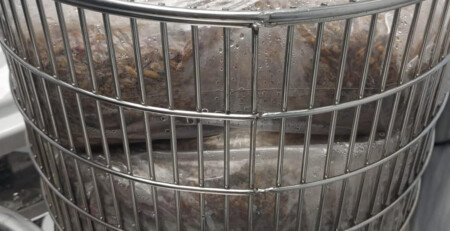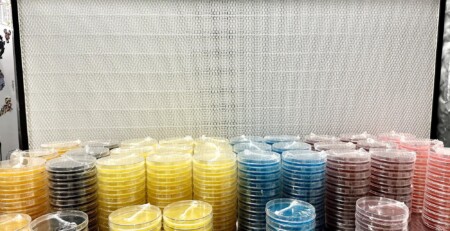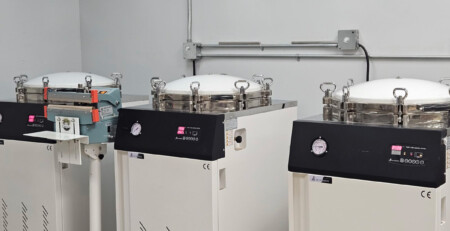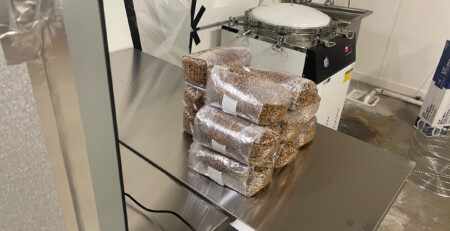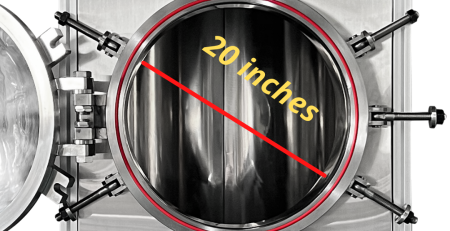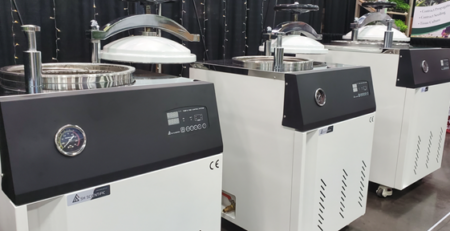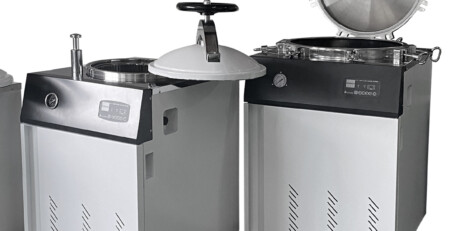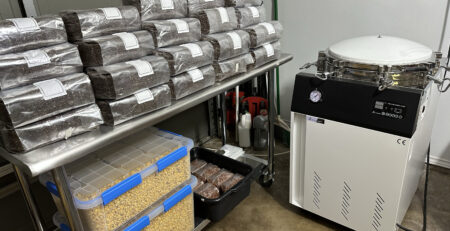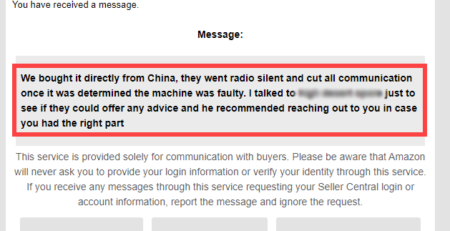Autoclave for Winery & Brewery
SH Scientific autoclaves are a safe, efficient way to conduct in-house quality testing immediately before bottling and packaging.
Your name on a bottle means a lot. It promises the intrigue of the first sip, the satisfaction of a meal with friends, the discovery of new terroirs and techniques.
For customers, it’s fun to entertain the romantic image of a carefree, sun-bronzed vintner stumbling into a serendipitous vintage of “bottled poetry.” But what customers don’t see is the painstaking work that transforms a harvest into the delight that your name evokes.
In reality, your operation is modern, scientific, and beholden to standards and frameworks like HACCP, GMP, and ISO.
This means regular testing, whether in house or with the help of an outside lab.
Ideally, sterilization and testing happen shortly before bottling and packaging. This approach means no added contamination risk from testing and no waiting period for third-party lab results.
But with outside testing services, a “just-in-time” approach isn’t always possible, and the associated costs are hefty.
In-house testing facilitates outgoing QC and significantly reduces costs. For instance, larger wineries may save tens of thousands of dollars annually just by conducting everyday assays internally.
And with a 60 L autoclave from SH Scientific, sterilization won’t be a bottleneck in your QA/QC efforts.
Sterilization for In-House Microbiological Testing at Outgoing Quality Check

Legitimate microbiological test results demand uncompromising sterilization.
Without dedicated equipment, it’s a struggle. For instance, many wineries use pressure cookers to sanitize glassware (like petri dishes) for microbiological tests.
The principle is sound: any source of pressurized steam is a fast, penetrating sanitizer.
But in practice, things get tricky.
Even the largest pressure cookers fall short on capacity, so many wineries set up a “fleet” for faster turnaround. That, in turn, requires more monitoring. Time-strapped staff need to adjust the temperature during the cycle, continuously check the PSI, and carefully relieve pressure before opening…for each device.
Perhaps that’s manageable, but it’s still not the whole story.
Local codes and ordinances often dictate where pressure cookers can reside and how they need to be contained. For example, some jurisdictions require a protective wall to guard visitors from potential pressure cooker explosions!
With all these labor and safety considerations, the savings of “inexpensive” pressure cookers seldom pencil out.
Autoclaves for Wineries
Food and beverage laboratories have long relied on autoclaves for trustworthy, hands-off sanitization.
They’re conceptually similar to a pressure cooker, but with much greater capacity and a bevy of safety features. For a production winery like yours, that’s the key to sustainable internal testing.
What autoclave does your winery need?
The best autoclave for your winery comes down to:
- Cost-effective capacity
- Appropriate certification
- Automation & safety measures
Let’s take a quick look at each of these factors.
Capacity
A 60-liter autoclave is sufficient for the vast majority of wineries. It’s large enough to hold two baskets (i.e., two layers of glassware) and avoids the wasted expense of surplus capacity.
While we offer autoclaves as large as 300 L, this is simply excessive for wine QA/QC purposes.
If you’re unsure about capacity, then feel free to contact our sales team to talk through your testing workflow.

Certification
Autoclaves come in two basic varieties.
Medical-grade autoclaves are designed for continual use in a patient care setting, and they generally hold the gold standard of Underwriter Laboratories (UL) certification.
Research-grade autoclaves are equally precise, but designed for intermittent use (as in a lab setting) and needn’t hold UL certification.
Medical-grade models carry an enormous premium: often more than twice the cost of a research-grade autoclave with similar capacity. That’s easily justified for healthcare providers, for instance, but there’s no practical benefit for wineries.
All SH Scientific autoclaves are research-grade, and trusted by food and beverage facilities worldwide to deliver performance and precision…without eye-watering costs.
Safety & automation
When staff are stretched thin, it’s critical to find a hands-off sterilization process. Unlike pressure cookers or other kitchen appliances, autoclaves are designed to run with next to no oversight.
To that end, SH autoclaves include programmable cycles, pressure management and release valves, door locks, water level sensors, and even heat shields for safety and convenience.
Wine testing standards & compliance
Like many wineries, you probably participate in food safety and quality control programs like HACCP, GMP, and ISO. All of these emphasize microbiological stability (among other goals) to ensure a safe and consistent beverage.
Testing is an ongoing obligation, which means either high recurring costs or a significant in-house workload.
ISO certification
ISO certification instills confidence that a laboratory gives reliable results by upholding international standards for equipment and protocols.
As far as testing goes, the most relevant standard is ISO 17025. It’s a technical certification that covers items like device calibration, testing methodologies, and documentation of results.
As of publication, dozens of ISO 17025-certified labs in the US specialize in wine testing and microbial analysis. Some well-known examples include:
- ETS Laboratories
- Vinmetrica
- Lodi Wine Labs
- Foss Analytics
- CDR WineLab
- Virginia Tech University’s Enology Services Lab
This is not an exhaustive list of wine labs. Moreover, some especially large wineries may even offer third-party testing for outside samples.
Your choice of lab—if any—comes down to balancing the convenience of outsourced testing with the cost-effectiveness of in-house analysis.
HACCP plans
The Hazard Analysis and Critical Control Points framework, or HACCP, is about identifying points of influence on food quality or safety, then applying systematic controls and tests.
HACCP entails much more than lab work. In fact, an HACCP plan may span everything from the vineyard to the cellar, all of which encompass varied natural threats and extensive human intervention.
Still, testing is a key control and analysis factor at every point. From assays like PCR to identify wild yeast strains, or culture plating for microbial analysis, sterile glassware is essential from start to finish.
GMP components
Good manufacturing practices (GMPs) are broad frameworks that touch on the entire winemaking process.
GMPs usually comprise standards of hygiene, quality control and recall management, clear documentation and change tracking, staff training, and even investigation of consumer complaints.
And, of course, laboratory quality.
On that point, winemaking GMPs often recommend an ISO 17025-certified lab. However, specialized wine labs are as costly as they are capable. It’s often more cost-effective to equip your own facility to handle routine testing for GMP purposes.
Getting Started With Your SH Autoclave
We make efficient, trustworthy, accessibly-priced autoclaves that help wineries uphold ISO, HACCP, and GMP standards.
Every feature, from overall capacity down to the placement of handles, reflects decades of real-world feedback from food and beverage producers, analytical labs, and research facilities.
All SH autoclaves are plug-and-play, so you’re up and running with nothing more than an electrical connection—no plumbing work needed. And with a warehouse in California and sales and support in Oregon, we ship rapidly and offer support on your hours.
Please contact us to learn more, confirm availability, or discuss technical needs in greater detail.

